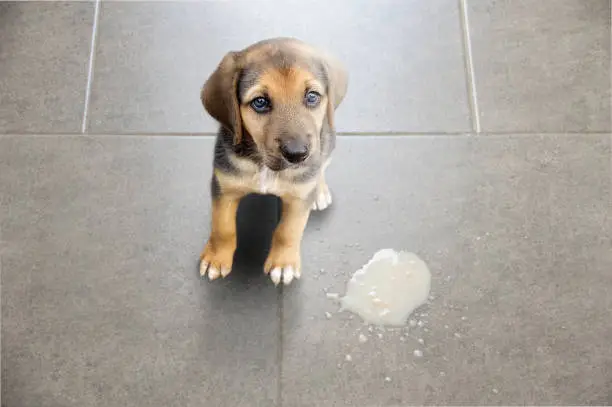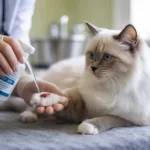
Contents
Introduction
As pet owners, it can be distressing to see your pet experience vomiting and diarrhea, especially when it’s severe. While mild cases of gastrointestinal upset can often be managed at home, there are times when these symptoms can indicate a more serious underlying condition that requires emergency care for pets.
In this blog, we’ll discuss how to recognize when vomiting and diarrhea in pets is a cause for concern, how to provide initial care at home, and when you should seek urgent veterinary care to prevent complications.
Why Vomiting and Diarrhea Occur in Pets
There are many reasons pets might experience vomiting and diarrhea, ranging from something as simple as a change in diet to more serious medical conditions. Understanding the root cause can help you determine the severity and urgency of the situation. Common causes include:
- Dietary indiscretion: Pets are curious creatures, and they often eat things they shouldn’t, including spoiled food, garbage, or foreign objects, leading to gastrointestinal distress.
- Infections: Viral, bacterial, or parasitic infections can cause vomiting and diarrhea in pets. Examples include parvovirus in puppies or bacterial infections like Salmonella.
- Food allergies or sensitivities: Some pets may have adverse reactions to certain ingredients in their food, leading to digestive upset.
- Toxins: Ingesting harmful substances like household chemicals, human medications, plants, or certain foods (like chocolate or grapes) can cause vomiting and diarrhea.
- Stress: Changes in environment, such as travel, moving homes, or even the addition of new family members, can trigger gastrointestinal upset in pets.
- Chronic diseases: Conditions like kidney disease, liver disease, pancreatitis, and inflammatory bowel disease can cause recurrent vomiting and diarrhea.
While most cases of vomiting and diarrhea are not life-threatening, severe or persistent symptoms can be a sign of a more serious health issue that needs to be addressed right away.
Recognizing the Severity of Vomiting and Diarrhea in Pets
The severity and frequency of vomiting and diarrhea are crucial factors in determining whether your pet needs emergency care. Here’s how to assess the situation:
- Frequency and Duration
If your pet is vomiting or having diarrhea multiple times within a few hours, it may indicate a more serious problem. A single episode of vomiting or diarrhea can often be managed at home, but if symptoms persist for more than 24 hours, it’s time to seek veterinary help. - Appearance of Vomit or Stool
Pay attention to the characteristics of the vomit or diarrhea. If the vomit contains blood, bile, or a strange color (like green or yellow), it may indicate a gastrointestinal obstruction or infection. Similarly, diarrhea that is bloody or black (which indicates digested blood) is a red flag and requires immediate veterinary care. - Other Symptoms
If your pet is also showing signs of lethargy, loss of appetite, dehydration, or abdominal pain (such as sensitivity to touch), these symptoms indicate a more serious issue that needs urgent attention. Dehydration, in particular, is a significant concern in pets with vomiting and diarrhea. - Age and Health Status
Young puppies, kittens, and elderly pets are at a higher risk for complications from vomiting and diarrhea, such as dehydration or shock. If your pet is very young, old, or has pre-existing health conditions like kidney disease or diabetes, it’s essential to seek emergency care for pets at the first signs of distress.
What to Do at Home Before Getting to the Emergency Vet
If your pet is experiencing vomiting and diarrhea, there are a few things you can do at home to manage the situation until you can get them to the vet:
- Withhold Food for 12-24 Hours
Give your pet’s stomach time to settle by withholding food for 12-24 hours (but continue to provide fresh water). This helps reduce the chances of further vomiting. However, avoid withholding water, as hydration is crucial. - Reintroduce Food Gradually
After the fasting period, slowly reintroduce a bland diet, such as boiled chicken (no skin or bones) and white rice, in small amounts. Gradually increase the amount if your pet tolerates it well. - Keep Your Pet Hydrated
Vomiting and diarrhea can lead to dehydration, so make sure your pet has access to water at all times. If your pet refuses to drink, you can try offering ice cubes or a pet-safe electrolyte solution (available at most pet stores) to encourage hydration. - Monitor Your Pet’s Symptoms
Watch for any changes in your pet’s condition. If their vomiting or diarrhea worsens, or if they begin showing signs of severe dehydration (dry gums, sunken eyes, lethargy), seek emergency veterinary care immediately.
When to Seek Emergency Care for Vomiting and Diarrhea
While many cases of vomiting and diarrhea can be managed at home, there are situations where you should seek emergency care for pets immediately:
- Signs of Severe Dehydration
If your pet is not drinking water or is showing signs of dehydration, such as dry gums, excessive panting, or lethargy, it’s crucial to seek immediate veterinary care. Dehydration can lead to shock or organ failure if not treated quickly. - Vomiting or Diarrhea with Blood
Bloody vomit or diarrhea, or stool that is black and tarry, is a serious sign that your pet needs urgent pet care. This could indicate gastrointestinal bleeding or other internal issues that require prompt medical attention. - Inability to Keep Water Down
If your pet is vomiting persistently and cannot keep water down, it’s vital to get them to the vet. In these cases, intravenous fluids may be needed to prevent severe dehydration. - Puppies, Kittens, and Senior Pets
Young pets and older pets are more vulnerable to complications from vomiting and diarrhea. Emergency care for pets is necessary if these symptoms persist for more than a few hours, as they can quickly become life-threatening. - If Your Pet Has Ingested a Toxic Substance
If you know or suspect that your pet has eaten something toxic, such as chocolate, household chemicals, or human medications, seek emergency care right away, even if vomiting and diarrhea are the only symptoms.
Conclusion
Vomiting and diarrhea in pets can be caused by a variety of factors, and while mild cases may resolve on their own, severe or persistent symptoms require immediate attention. If your pet is showing signs of distress, especially if they are vomiting or having diarrhea frequently, seek veterinary care right away. Prompt action can prevent complications such as dehydration, shock, or organ failure.
At North MS Pet Emergency, we are always here to help when your pet needs urgent care. Whether your pet is experiencing vomiting and diarrhea, poisoning, or other health emergencies, our team is ready to provide expert care.
Contact Us Now for immediate assistance, or visit us for emergency care for pets after hours.




